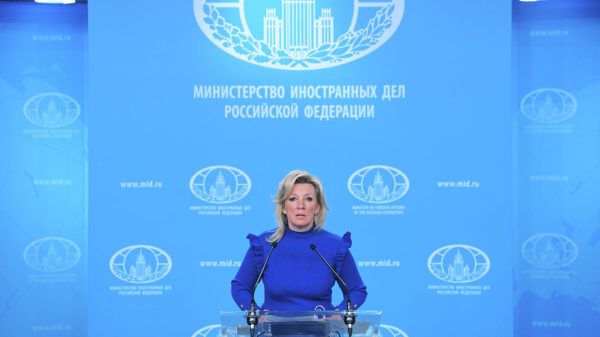BBC's Broadcasting House in London
Credit: HENRY NICHOLLS /REUTERS
The BBC’s director general has warned of the “growing global threat to the free media” after the corporation was banned from broadcasting in China and Hong Kong.
In his first intervention since Beijing announced the ban, Tim Davie said that countries such as China were now trying to expand their “control of information”. Mr Davie, who took up the post of director general in the autumn, said it was of “deep concern” that China was preventing the BBC from doing its job.
But he stressed the wider concern that China — and by implication other countries such as Russia — were trying to peddle their own state-controlled news operations abroad while attacking the free press within their borders.
Mr Davie last night told The Telegraph: “Media freedom matters. The latest developments in China, including the banning of the World Service in Hong Kong, are deeply worrying developments. The BBC should be able to do its reporting without fear or favour.
“It is of deep concern when our journalists are restricted and their work curtailed. Importantly, in these difficult times when misinformation is rife, we have seen growing audiences for trusted news sources — including hundreds of millions coming to the BBC.
“This is not just about stopping the BBC from broadcasting news in China, there are significant and growing global threats to the free media as some seek to increase their control of information. Now, more than ever, it is important that we speak out to defend free and fair journalism.”
Senior BBC sources said there was now three-fold threat from states such as China and Russia, through manipulation of social media, funding their own biased news operations and shutting down trusted international broadcasters.
“These states are actively manipulating social media to undermine legal democracies while at the same time flexing their muscles by pumping millions of rubles or whatever currency into global news services that distort the truth. And now they are preventing the likes of the BBC from broadcasting.”
China banned the BBC World News Channel on Thursday in apparent retaliation for Ofcom’s decision to revoke the UK broadcasting license of Chinese state broadcaster CGTN after finding the organisation is “ultimately controlled by the Chinese Communist Party”
A man walks along an observation deck near the Beijing headquarters of CCTV, the state-owned broadcaster that owns CGTN, earlier in February
Credit: Mark Schiefelbein/AP
German broadcasting authorities said on Friday that they would also take CGTN off the air if it could not produce a valid license for broadcasting in the EU, raising the prospect of a continent-wide ban.
The station previously broadcast into Germany and other EU states on the strength of its Ofcom license.
A Vodafone spokesman confirmed to the Telegraph that it had already stopped transmission of CGTN on its cable networks in the states of North Rhine-Westphalia, Hesse, and Baden Wurtenburg “until the situation becomes clear.”
A spokesperson the Landesmedienanstalten, Germany’s equivalent of Ofcom, said: "CGTN is not licensed in Germany" and regulators have not received any application from it.
“CGTN has to provide a valid licence to the network operators…If they cannot provide a valid licence, retransmission has to be stopped.”
The station could theoretically continue to broadcast to Europe by moving its London headquarters to another European country and applying for a new license. It said last week that it did not intend to close its state-of-the-art newsroom in Chiswick Park.
CGTN had not responded to emailed questions by close of business on Friday.
























































Свежие комментарии